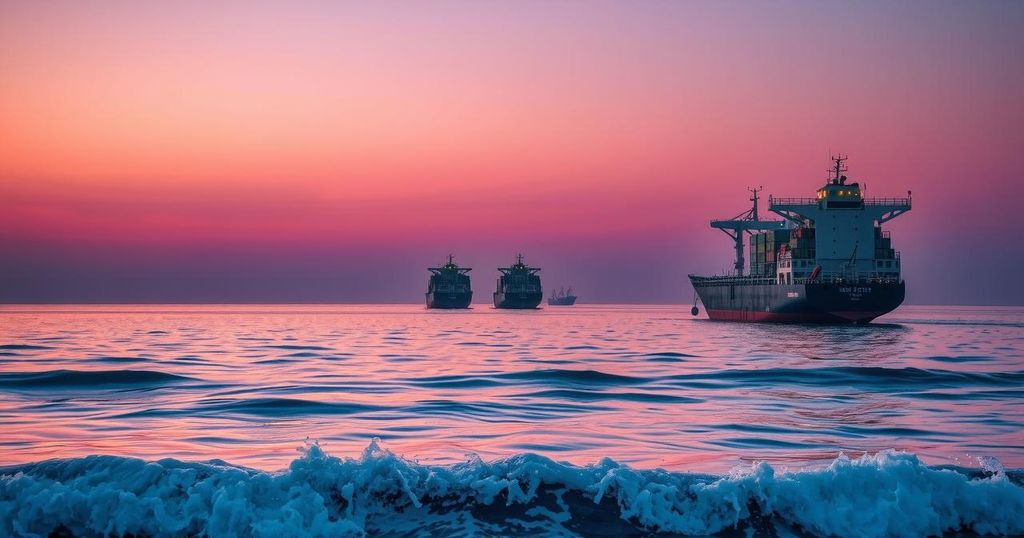The Houthis have vowed to maintain their attacks on Israeli-linked shipping in the Red Sea, despite U.S. military pressure and Iranian mediation efforts. The group claims the right to defend itself amidst ongoing military actions, showcasing their alignment with Iran while asserting independence in decision-making. Recent statements reveal the escalating tensions and complexity of the situation involving multiple regional players.
Yemen’s Houthis have declared their intention to persist with attacks on Israeli-linked shipping in the Red Sea, rejecting any pressure from the United States or appeals from allies like Iran to cease such actions. Houthi Foreign Minister Jamal Amer communicated this stance following U.S. military strikes targeting areas controlled by the Iran-aligned group, which asserted its support for Palestinians in Gaza by resuming attacks on Red Sea shipping.
Following the U.S. military actions, two high-ranking Iranian officials indicated that Iran had attempted to mediate a reduction in tensions by delivering messages to the Houthi envoy. However, Iran has not publicly commented on this outreach, emphasizing that the Houthis operate independently concerning their decisions. Amer asserted, “There will be no talk of any dialling down of operations before ending the aid blockade in Gaza.”
Amer asserted that Yemen is engaged in a war against the United States, thus justifying its right to self-defense. He indicated that messages to de-escalate had been received from various powers, but he remains resolute in the face of U.S. aggression, stating, “Now we see that Yemen is at war with the U.S., and that means that we have a right to defend ourselves with all possible means.”
Iran has shown increasing alarm about potential deeper involvements in conflict with the United States, particularly as both countries exchanged direct strikes recently. President Donald Trump has intensified sanctions against Iran since resuming his presidency, contributing to heightened tensions.
The Houthis initiated over 100 attacks on shipping beginning in November 2023, framing this militancy as solidarity with Palestinians amidst the ongoing Israel-Hamas war. Following a temporary cessation during a ceasefire in January, they have resumed targeting what they label as Israeli vessels, emphasizing their defensive stance in light of escalating U.S. strikes that have adversely affected Yemeni civilian areas.
While urging restraint, some European Union nations have communicated concerns to the Houthis regarding the escalation of their operations. Saudi Arabia has refrained from military intervention against the Houthis thus far, a situation the Houthis appreciate but caution could change.
The Houthis maintain an alignment with Iran while asserting their operational autonomy. Domestic motivations largely drive their actions against Israeli threats, despite the geopolitical complexities surrounding their support from Iran, acknowledging the nature of their ongoing conflict as one that continues to evolve amid external pressures.
In summary, the Houthis remain defiant in their commitment to attack Israeli-linked shipping in the Red Sea, despite pressure from both the United States and Iran. Their recent escalations in response to U.S. military actions highlight the volatile situation in the region. The group positions itself as both aligned with Iranian support and independently motivated by domestic concerns, all while navigating a complex framework of international relations that continues to evolve amidst ongoing conflicts.
Original Source: www.marinelink.com




